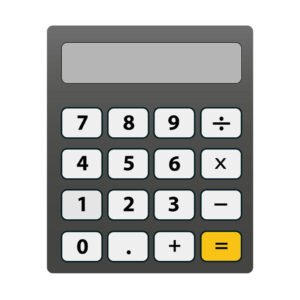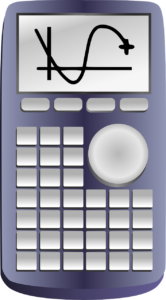Exploring Types of Calculators
A calculator is a handy tool for doing math. Some are simple and great for everyday math like addition and subtraction. Others are more advanced, handling complex tasks like finding square roots, doing trigonometry, and even very advanced math. It’s interesting to note that some calculators achieve these complex tasks by repeatedly adding numbers.
The Journey of Calculators: From Abacus to High-Tech Marvels
Before electronic calculators, people used a tool called the slide rule, which had a sliding part and scales for precise math without electricity. Even before that, there was the abacus, an ancient tool still used in parts of the Far East. It uses beads to represent numbers and can be surprisingly fast and accurate, much like modern battery-powered calculators.
The Era of Modern Calculators
In the 1970s, calculators underwent a significant transformation. They started becoming early personal computers capable of solving problems with unknown numbers. Today, you can easily access digital calculator apps on your smartphone or computer. They look and function just like the handheld calculators of the past.
Discovering Different Types of Calculators
1. Basic Calculators: Your Simple Math Assistant
Basic calculators are affordable and perfect for everyday math tasks such as addition, subtraction, multiplication, and division. They’re often called pocket calculators because they’re small and easy to carry, and you can find them for as low as $5.

2. Scientific Calculators: Solving Complex Math Puzzles
Scientific calculators are designed for advanced math. They come with a wide range of buttons to handle trigonometry, logarithms, sine, cosine, and exponentials. They also have larger screens for working on complex equations, making them ideal for higher-level math.

3. Graphing Calculators: Essential for Visual Learners
Graphing calculators go beyond numbers; they can plot equations on a graph. If you’re studying subjects like calculus that involve a lot of graphing, these calculators are incredibly helpful. They are especially beneficial for visual learners, making it easier to grasp challenging math concepts.

4. Financial Calculators: Your Financial Expert’s Best Friend
Financial calculators are tailored for finance professionals and enthusiasts. They simplify financial calculations like present and future values, rates of return, and important financial metrics. They come with features like paper tape for maintaining records and ensuring accuracy in financial transactions and investments.
The Expanding World of Calculators
Digital calculators have become a part of our daily lives, both personally and professionally. Whether you’re a student, engineer, scientist, financial analyst, or someone who needs to calculate everyday expenses, there’s a calculator designed for your specific needs.
Types of Calculators have become a crucial keyword in this age of technological advancement. These devices have become essential in education, engineering, science, and finance. Let’s delve deeper into the diverse world of calculators and their significance in our lives.
Types of Calculators in Education:
In education, calculators are valuable tools. Students use them for solving complex math equations, performing statistical analyses, and creating graphs for their projects. While basic calculators are common in elementary and middle schools, advanced models become necessary as students progress.
Types of Calculators in Engineering and Science:
Engineers and scientists rely on specialized calculators for intricate calculations. Scientific calculators, equipped with functions for trigonometry, logarithms, and exponentials, are essential for solving complex equations. They support research, experimentation, and data analysis, making them valuable tools in laboratories and engineering projects.
Types of Calculators in Finance:
Financial calculators are essential for finance professionals and enthusiasts. They simplify financial calculations, including determining present and future values, computing rates of return, and analyzing critical financial metrics. These calculators include features like paper tape for record-keeping, ensuring precision in financial transactions and investments.
Types of Calculators for Visual Learning:
Graphing calculators are particularly beneficial for visual learners. They can create graphs and plot equations on coordinate planes, making it easier to understand mathematical concepts that involve visual representation. In subjects like calculus, where graphing plays a significant role, these calculators are invaluable.
Conclusion:
In the modern age, calculators have become indispensable tools tailored to specific mathematical needs. Whether you need a basic calculator for everyday math or a sophisticated one for advanced scientific functions, there’s a calculator designed just for you. The world of calculators continues to evolve, making these devices even more accessible and versatile.
